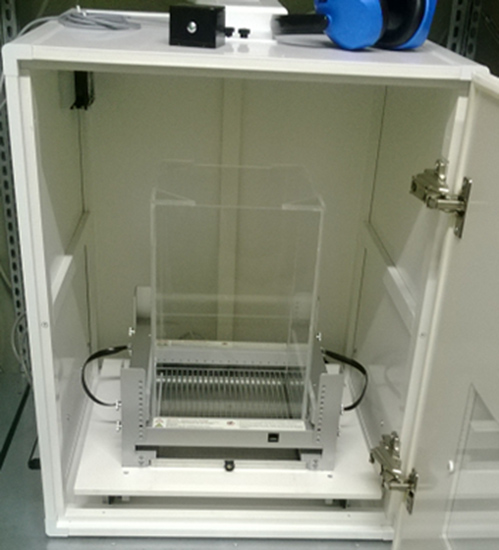Species
Mouse
Fields of application
Contextual Fear Conditioning is a form of learning in which an aversive stimulus (electrical shock) is associated with a particular neutral context (environment) or neutral stimulus (tone), resulting in the expression of fear responses to the originally neutral stimulus or context. The test analysis contextual and cued fear reflexes.
The model can be used for the following fields of application:
- Central nervous system damage
- Disease effects on contextual and cued fear reflexes
- Drug administration
- Therapeutic efficacy
- Proof of concept
Endpoints / outcome parameter
- Contextual Memory
- Memory of Cue
Readout parameter
- Movement (x / y / z) [counts]
- Freezing duration [sec or %]
- Number of freezes [counts]
Quality management and validation
- Controls
- Randomisation
- Blinded data collection and analysis
- Biometric expertise
- Internal quality management
